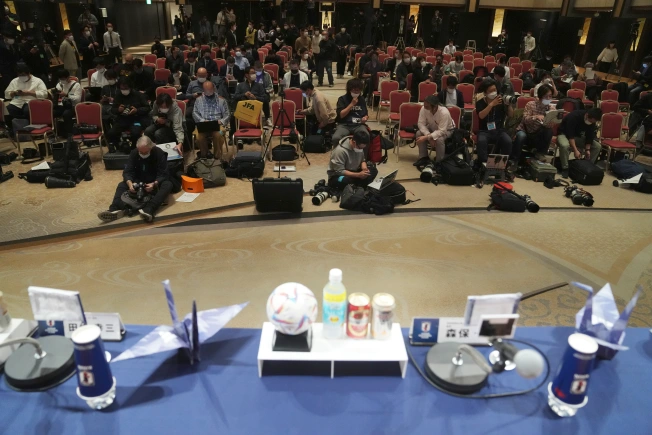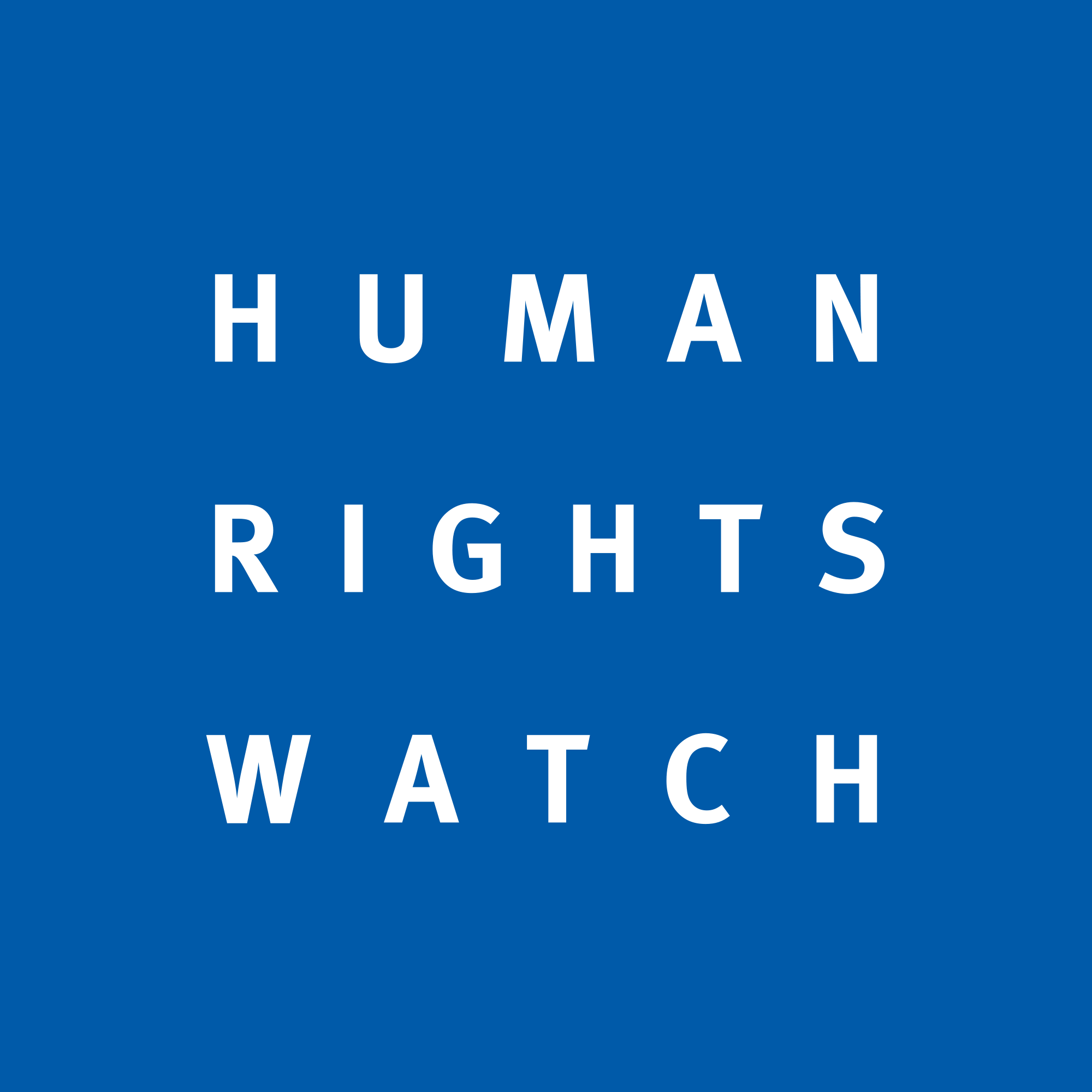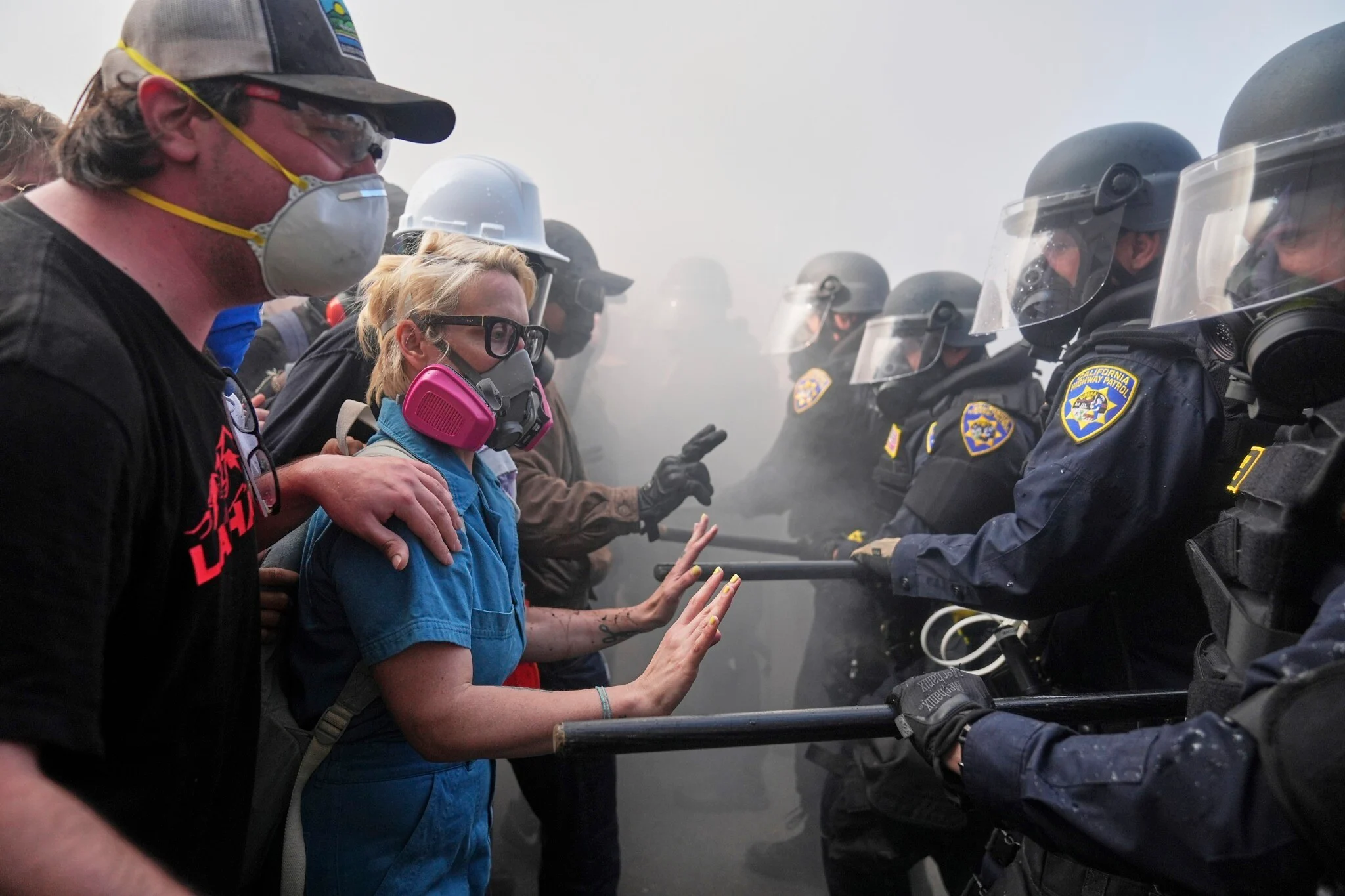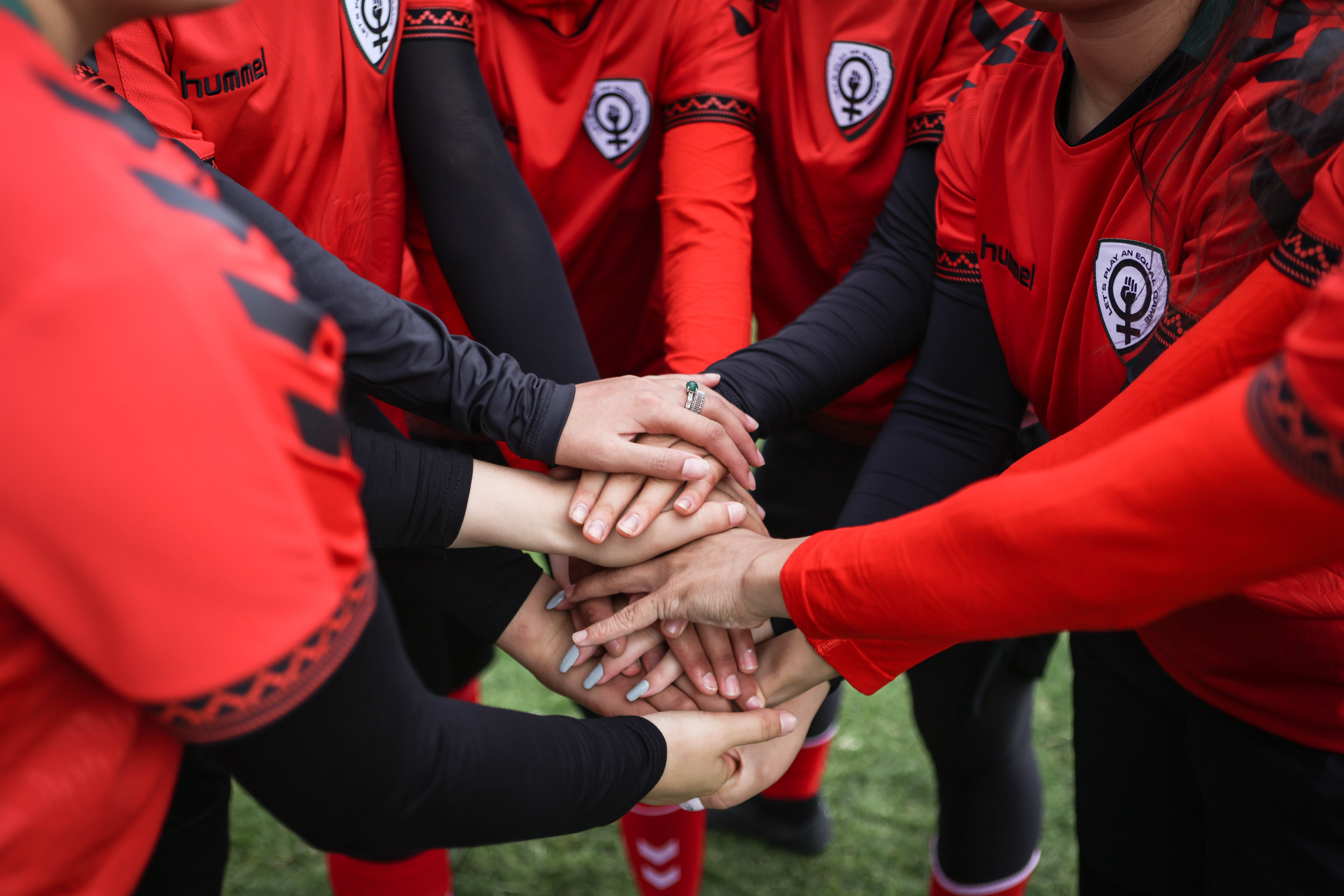The 2022 FIFA World Cup takes place in Qatar from November 20 to December 18, the first World Cup to be held in the Arab world, and said to be the biggest sporting event held in the Middle East.
Journalists working in the small nation bordering Saudi Arabia have faced digital security threats, legal issues, and challenges associated with cultural sensitivities. The Qatari government, which operates under a monarchy headed by the ruling Emir, has low tolerance for critical reporting on domestic issues and journalists covering human rights have been detained.
The information below is intended to help journalists and media workers prepare for the 2022 FIFA World Cup and cover it safely. It’s not exhaustive, so consult travel guidance in your home country for further information.
Digital safety
Authorities in Qatar, like others in the Gulf region, restrict video and calls in messaging apps and are reported to keep journalists, human rights defenders, and others, under close physical and digital surveillance. In 2020, the phones of 36 journalists working for Al Jazeera were infected with Pegasus spyware, according to Citizen Lab.
If you are traveling to Qatar, assume your devices and online activity could be monitored. The more you can do in advance of your trip to secure and prepare your devices, the safer your data will be.
Top digital security tips for journalists reporting at the 2022 World Cup
- Leave your devices at home. Wipe an old phone and laptop or purchase new ones for travel.
- Create a new work email specifically for the trip.
- Assume your hotel room is under surveillance.
- Keep your devices with you at all times if you can.
- Wipe your devices and check in with your IT department on return.
Risk assessment
- Conduct a risk assessment before you travel.
- Ask IT support or security teams for guidance if you can.
Prepare your devices
Phones and laptops could be contaminated with malware to spy on you or stop them from functioning normally while you in Qatar. Leave personal and work devices at home to protect your data and only carry devices purchased specifically for the trip. Wipe old devices if you unable to buy new ones.
- Prepare your devices for crossing borders following CPJ’s Digital Safety Kit.
- Wipe old devices before traveling.
- Only install essential apps and services.
- Update all operating systems, apps, and browsers before travel.
- Check that your phone and mobile internet will work in Qatar.
Data and accounts
Online accounts hold a lot of data about you, including information about your personal life, your sources, and your family. Limit the apps and accounts you access while in Qatar for the sake of your data privacy. Familiarize yourself with local laws and regulations to ensure that you’re not carrying data that could break the law or compromise your safety.
- Understand that all data stored in accounts could be compromised if you log into them from Qatar.
- Limit what messaging platforms and social media accounts you will use and be aware that some apps with video and voice calling will have limited functionality.
- Look yourself up online. Remove data that could put you or others at risk or make it private following CPJ’s guide. Always try to mitigate risks you may face due to your identity – journalists identifying as LGBT may consider removing data about family or partners due to Qatar’s strict anti-LGBT laws (see below).
- Create a new work email address for the duration of your trip. Avoid logging into your regular work services in case content is exposed.
- VPN services, which allow you to access banned websites through a virtual private network, are functioning in Qatar, but download several in case one is blocked. VPNs are not technically illegal, but accessing content that the authorities consider illegal could result in a fine or prison term if officials are looking for a reason to penalize you.
- Secure your accounts following CPJ’s Digital Safety Kit.
- Spreading “false news” is punishable by fines and prison terms under cybercrime law and the penal code. There is no clear definition of “false,” but it could include content that “violates social values or principles.”
- Posting material online, including videos and photographs, which appear to insult or slander others, or are culturally insensitive, may constitute a criminal offense under strict privacy laws.
Qatar COVID-19 tracking app
All journalists entering Qatar must abide by the Covid 19 Travel and Return Policy and install the Covid-19 tracking app, Ehteraz, via the Ministry of Health’s pre-registration platform three days before travel. Experts have described the app as “invasive” and it may collect personal data.
- Install Ehteraz on the dedicated phone for your trip, not your regular personal or work devices.
- Once the app is installed, avoid using the phone or carrying it with you until you are en route to Qatar.
- Delete your data, uninstall the app, and wipe your device on return.
While in Qatar
- Keep your devices on you and avoid leaving them unattended.
- Assume that everything you do online will be monitored.
- CPJ sources confirm that call and video are currently restricted in popular messaging apps, such as WhatsApp.
- Calls made via your cell phone or hotel landline are not encrypted and can be intercepted.
On your return
- Staff journalists should debrief with IT or security teams and follow their guidance.
- Remove SIM cards from phones, and wipe or factory reset all phones and computers. This is not guaranteed to wipe all malware, so stop using the devices if possible.
- Change passwords on all accounts accessed in Qatar.
- Monitor accounts and devices for any activity that is out of the ordinary. Consult an IT expert if you have concerns.
Physical safety
Qatar is renowned for its relatively low security risk. However, there is no culture of tolerance for critical reporting and legislation is based on a strict interpretation of sharia law, with stringent penalties including fines, detention, or deportation. Familiarize yourself with local laws and customs before travel.
Detention
Journalists in Qatar practice a degree of self-censorship due to criminal defamation and other restrictive laws, and foreign journalists are not exempt from arrest and deportation. It is illegal to criticize the Emir, and coverage of migrant rights, labor, and the royal family can result in a particularly aggressive response. Two Norwegian reporters were detained for over 30 hours in 2021 for trespass and filming without a permit. Kenyan labor rights blogger Malcolm Bidali was detained in early May 2021 and held for nearly a month; he was later fined and allowed to leave Qatar in August 2021. Both incidents involved coverage of poor conditions for migrant workers.
Accreditation and legal concerns
- FIFA media accreditation to cover the World Cup officially closed on August 15, 2022. Contact the FIFA Media Hub with questions.
- The Qatar News Agency issues journalists seeking to use video or photography with a press permit. Applying for one will clear cameras and other equipment through customs and provide other necessary information.
Legal issues that travelers have fallen foul of in the past include the following:
- Some prescribed and over-the-counter medicines are controlled substances. Carry your prescription and a note signed and stamped by a hospital or doctor’s surgery detailing the name, quantity prescribed, and dosage if you need to travel with medication.
- There is zero tolerance for drugs in Qatar. Penalties for using, trafficking, smuggling, or possession, even of residual amounts, are severe.
- It is an offense to drink alcohol or be drunk in public. You can only buy alcohol in licensed hotel restaurants and bars.
- Swearing and rude gestures are considered obscene acts and offenders can be jailed or deported. Take particular care when dealing with police and other officials.
- Sex between unmarried individuals is a crime, and sexual assault victims have even been punished for engaging extra martial relations. The risk of sexual assault is elevated during large sporting events.
Hooliganism and violence
Violence from football fans is less likely to occur in Qatar than in previous World Cup host countries like Russia and Brazil. Basic situational awareness and security precautions should mitigate the risk.
However, security officials may be poorly trained with limited knowledge of journalists’ rights and local regulations. Qatari authorities are not used to football-related violence and are conscripting nationals to provide security alongside 3,000 security personnel from Turkey. Airlines are screening passengers for known violent offenders.
Dress
Dress modestly. Women are not required to wear headscarves, but shoulders and knees should be covered. If visiting religious sites, be respectful and dress more conservatively.
Sexual preference and identity
Homosexuality is illegal in Qatar and LGBT persons face discrimination under the law and in practice. Sex between unmarried individuals is a crime.
Host authorities have stated that “everyone is welcome” at the World Cup and publicly confirmed that there will be no restrictions on non-married friends or couples, same-sex or otherwise, staying in the same room. Nevertheless, LGBT visitors may choose to be cautious throughout their time in Qatar, and should be aware of Qatari authorities’ censorship of LGBT coverage.
Medical issues and insurance
Qatar’s medical emergency line is 999. Hospitals and medical treatment are highly regarded but can be very expensive.
Travel and medical insurance are recommended. Regardless of insurance coverage, many physicians and health care facilities will require payment with either cash or credit card before rendering service.
Women are routinely asked for marriage certificates when seeking prenatal care.
The U.S. Embassy has compiled a list of medical facilities in the country.







